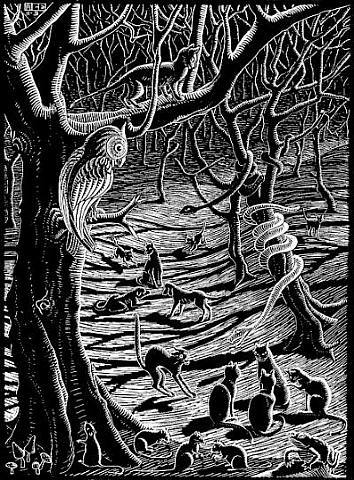 Bright and still this afternoon on California’s north coast, but there’s still a chill in the air.
Bright and still this afternoon on California’s north coast, but there’s still a chill in the air.
This morning, a symbolic-metaphoric event based on figured-reality — the fabled, iconic Doomsday Clock, created and maintained by the Science and Security Board of the Bulletin of Atomic Scientists since 1947 was moved two minutes closer to the also-iconic-but-frightful symbolic-metaphoric Midnight Hour — “probability of global catastrophe is very high.”
The clock hasn’t been changed since 2012, when pushed ahead one minute to 11:55 p.m. Reason for today’s move is the same as then — climate change — but now with an addendum, nuclear proliferation.
In the history of the clock, we’re the second closest to Midnight — in 1953, time was set forward to 11:58 p.m. after the Soviet Union tested their hydrogen bomb.
(Illustration: M.C Escher’s ‘Scholastica,’ found here).
And apparently, after all the shit dies down, the dust settles, the clock is set back. However, that setting in 1953 stayed there for seven years, until turned-back five minutes to 11:53 in 1960. This the fourth update to the clock due directly to climate change, though an issue since 1961, and the 22nd adjustment to humanity’s closing peril.
Shit has got to be bad, real bad, to even conceive of such an instrument as that clock.
In whatever direction, as in today’s tick up — via the San Jose Mercury News:
“This is about doomsday; this is about the end of civilization as we know it,” bulletin executive director Kennette Benedict said at a news conference in Washington.
She called both climate change and modernization of nuclear weaponry equal but undeniable threats to humanity’s continued existence that triggered the 20 scientists on the board to decide to move the clock closer to midnight.
…
But other scientists aren’t quite so pessimistic.
Michael Oppenheimer, a professor of both geosciences and international affairs at Princeton University, said in an email: “I suspect that humans will ‘muddle through’ the climate situation much as we have muddled through the nuclear weapons situation — limiting the risk with cooperative international action and parallel domestic policies.”
…
Richard Somerville, a member of the Bulletin’s board who is a climate scientist at the Scripps Institution of Oceanography, said the trend in heat-trapping emissions from the burning of fossil fuels will “lead to major climatic disruption globally.
“The urgency has nothing to do with politics or ideology. It arises from the laws of physics and biology and chemistry. These laws are non-negotiable.”
Nuclear ‘war,’ yeah, not so much any more. Nuclear ‘detonation,’ though, a good-high probability there.
Yet first for reality is making safe our only living environment — that’s just me, but I’m a pessimistic-optimist.